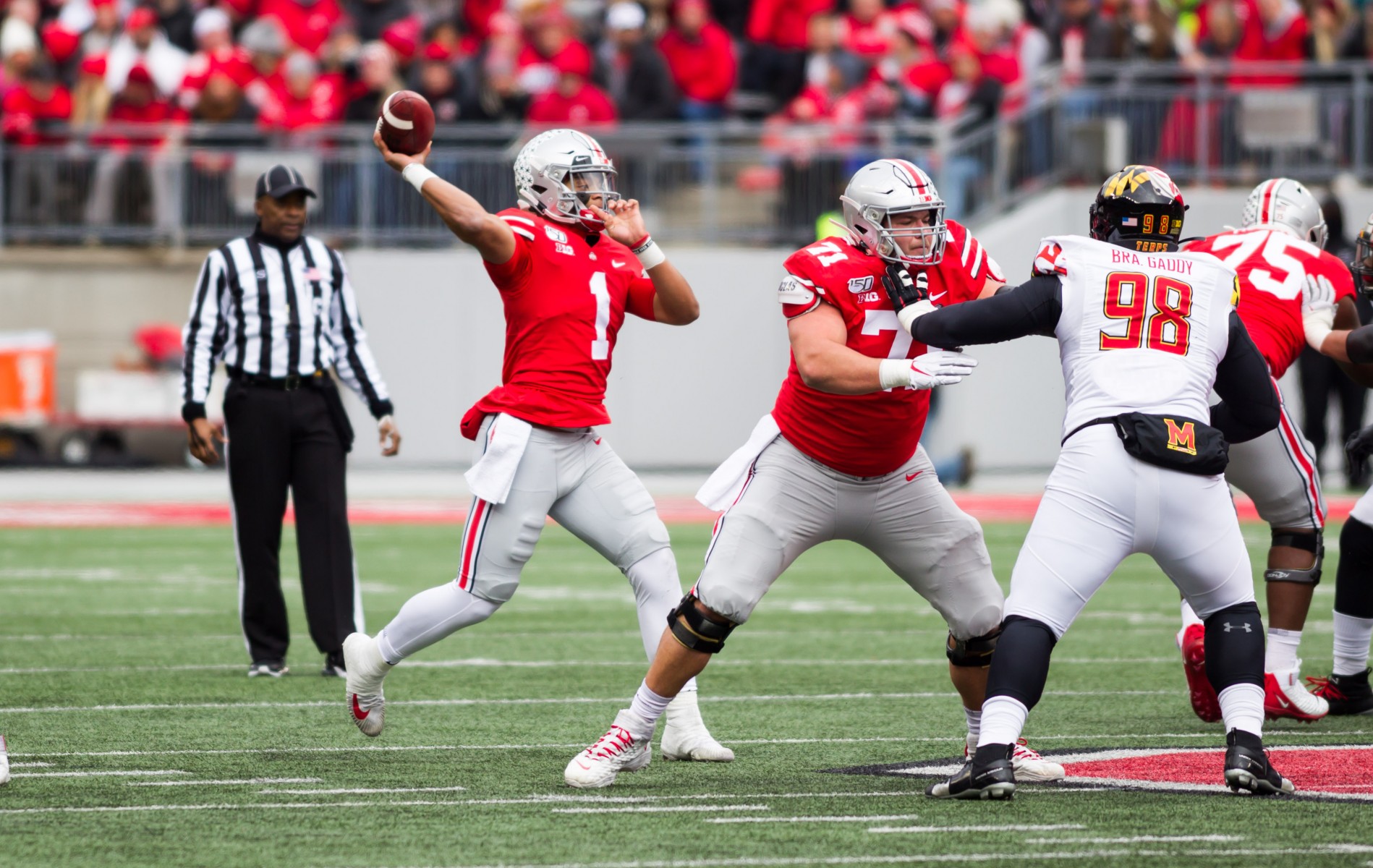Tackling Epilepsy
Neurological Disorder Doesn't Stop Bears Quarterback

Many football fans expected Ohio State University quarterback Justin Fields to be drafted high in the recent NFL draft. But when he wasn’t selected until the 11th overall pick by the Chicago Bears, some fans were left scratching their heads as why so many teams passed on the talented player.
Perhaps the best explanation was the pre-draft discovery that Fields has epilepsy, a neurological disorder that can cause seizures. But Fields, who was diagnosed as a child and takes medication, hasn’t experienced any on-the-field problems during his football career, and his doctors believe he’ll overcome it, as many of his family members have.
“I just read a report that says he can grow out of it, which can mean one of two things," says Dr. Tariq Gheith, Neurologist, OSF HealthCare Illinois Neurological Institute. "He just has a childhood epilepsy, which is benign and you grow out of it when you’re older, or because he’s been seizure free for so long, it’s possible he’s outgrown his epilepsy in which both cases is very possible.”
Anyone can develop epilepsy, which is diagnosed following at least two unprovoked seizures. It impacts both males and females of all races, ages and backgrounds. According to the Centers for Disease Control and Prevention, about 3.4 million people or 1 % of the population has epilepsy.
Risk facts include: age, family history, brain infections and stroke and other vascular diseases. Some symptoms are temporary confusion, loss of consciousness or awareness and uncontrollable jerking movements of the arms and legs. Symptoms vary depending on the type of seizure.
“The most objective way to diagnose it is with an electroencephalogram or EEG," says Dr. Gheith. "Sometimes in some patients their brain waves can show us they are prone to seizing or sometimes we capture a seizure while they’re hooked up to the brain wave, which is the EEG. But we’re not really that fortunate with most patients. With most patients it’s what they tell me in the visit. There are certain features which say it might be epilepsy and then there are certain features that say this might be something else.”
Another risk factor is head injuries, which is most concerning for a football player such as Fields.
“It is a violent sport," says Dr. Gheith. "Any time you get your head hit, any time you increase stress, it can put you at risk for seizures. It all depends on his level or intensity of what his epilepsy is. It sounds like he has a very mild form.”
Epilepsy can be treated with medication or surgery. Some people will require lifelong treatment, while others may outgrow the condition over time. Dr. Gheith says it’s important to keep your doctor informed of any symptoms or changes you experience.
“It’s not always what you see in the movies," says Dr. Gheith. "It’s not just you shaking all over the place and losing consciousness. You can very well retain consciousness during a seizure and you can do that for years and be seizing and not know it. It’s always a good idea to reach out to somebody just for your own peace of mind.”
For more information about epilepsy, visit OSF HealthCare.

